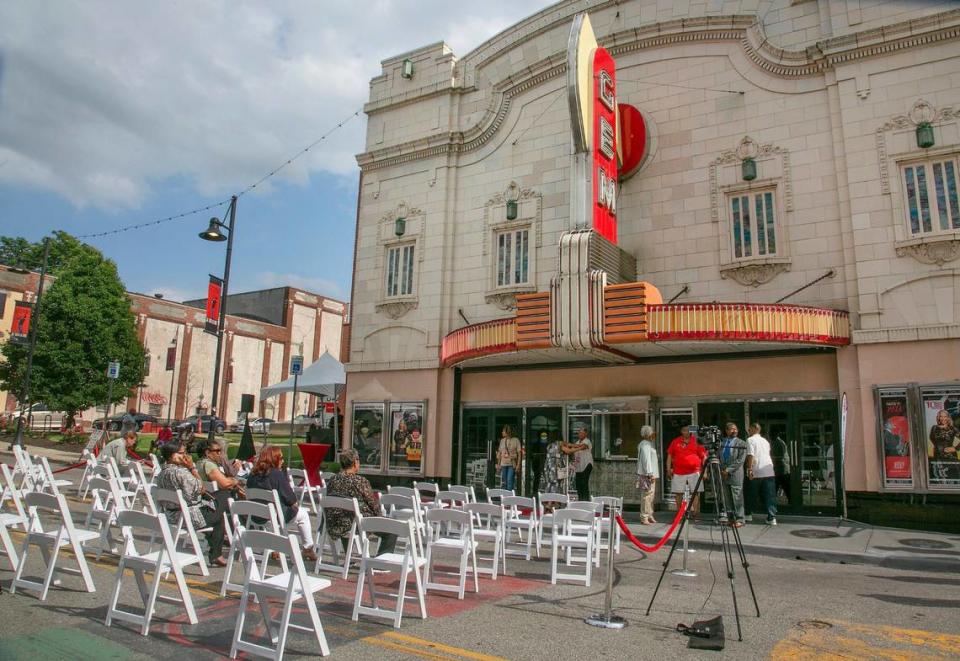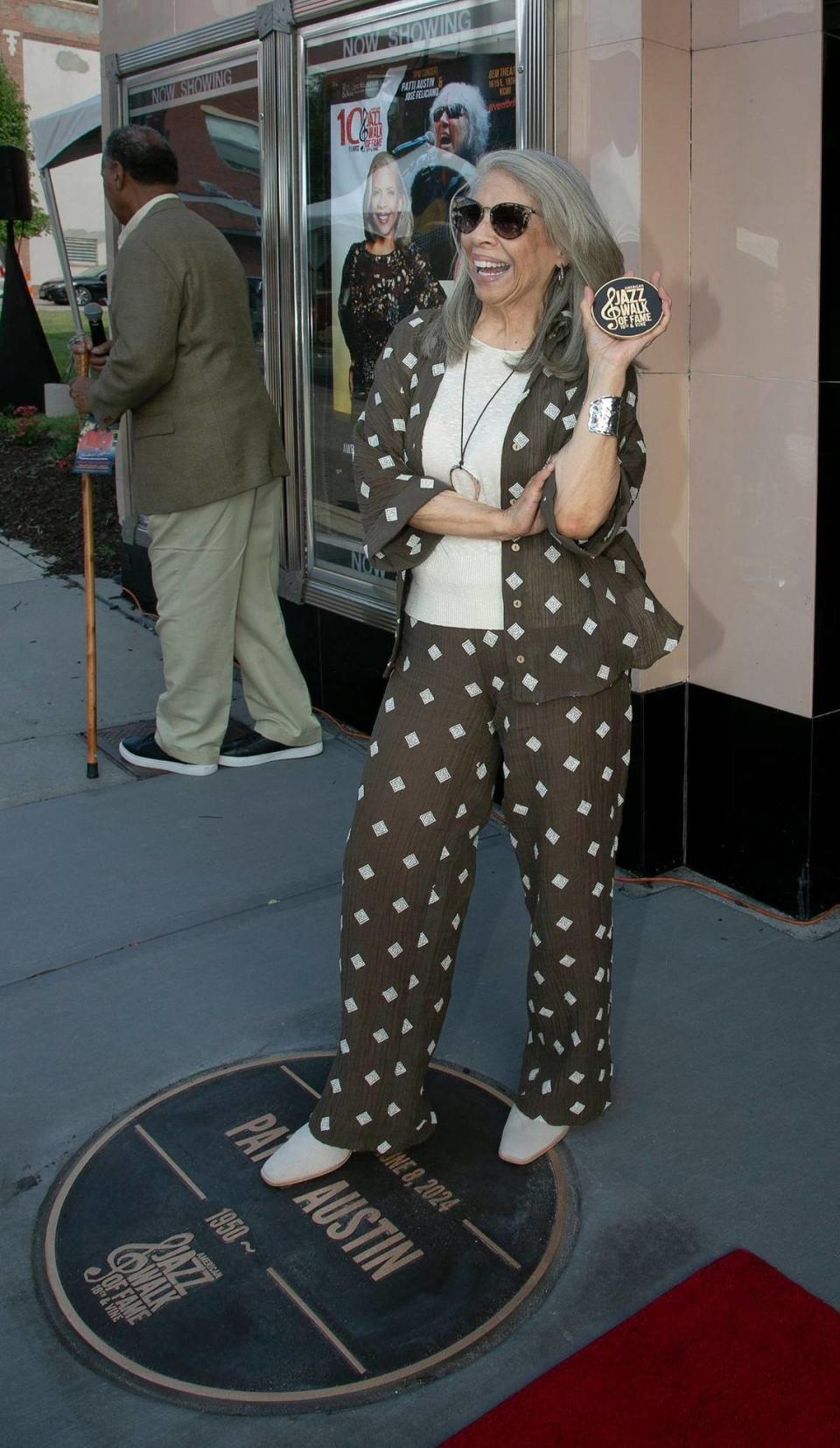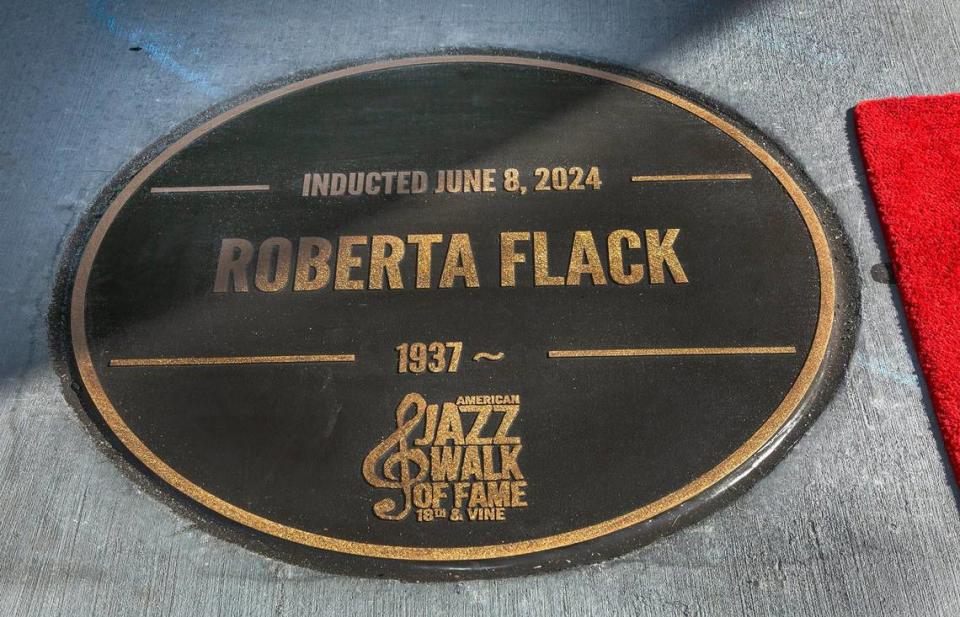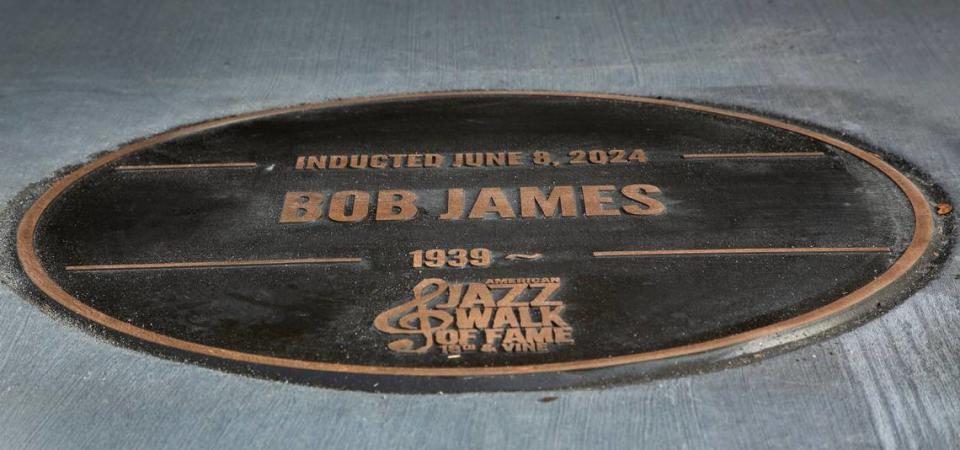KC’s Jazz Walk of Fame has been honoring musicians for 10 years. Meet its newest members
The sun began to peek through the clouds as Congressman Emanuel Cleaver stepped up to the podium in the humid Kansas City heat. Men in fedoras and women in dresses meandered about, all waiting for the red carpet to be rolled out in Kansas City’s Historic Jazz District.
Three jazz musicians were inducted into the American Jazz Walk of Fame Saturday at the Artists Avenueat 18th & Vine.
Jazz legends and two of the inductees, Roberta Flack and Bob James, were not able to attend the event in person. Flack wasn’t present due to poor health, and James had a prior commitment, said Suzetta Parks Pennington, a spokeswoman for the Jazz Walk of Fame.

Patti Austin
The third musician, Patti Austin, was able to attend and perform.
“I’m not gonna talk very long as I have a show tonight, here,” Austin said. “And I’m a girl. And it requires more than turning my underwear inside out and putting on a tuxedo.”
Patti Austin, the daughter of jazz trombonist Gordon Austin, sang hits such as “The Family Tree,” “Baby Come To Me,” and “How Do You Keep The Music Playing?”
And she’s a Grammy winner for her album “Avant Gershwin.”
Her induction speech was filled with jokes for the crowd, including a lighthearted nod to a spelling error on her plaque.
“Oh my goodness, well isn’t that lovely,” Austin said. “Except for the fact that you spelled my name wrong, it’s fantastic!” She posed proudly with her foot over the mistake.

“This is my 70th year in show business,” Austin said. “So can I stop now? With friends like you, who needs enemies.”
Austin co-founded her organization, the Over My Shoulder Foundation, to “raise awareness of the impact of mentoring both cross-culturally and cross-generationally,” according to the foundation’s website.
Roberta Flack
Roberta Flack initially signed to Atlantic Records after being discovered in a D.C. nightclub, according to her website.
She produced hits such as “The First Time Ever I Saw Your Face,” “Where is the Love” and “Killing Me Softly With His Song.”

Flack won four Grammy awards for female best pop vocal performance (“Killing Me Softly With His Song”), record of the year (“Killing Me Softly With His Song”), best pop vocal performance by a duo, group or chorus (“Where Is The Love”) and record of the year (“The First Time Ever I Saw Your Face”).
Flack created the Roberta Flack Foundation, which aims to support animal welfare and help girls of color with their education. She retired from touring in 2018, according to her website.
In 2020, Flack received a GRAMMY Lifetime Achievement Award. During the COVID-19 pandemic, she raised awareness for Feed the Children.
Bob James
Bob James, of Marshall, Missouri, was discovered at the Notre Dame Jazz Festival in 1963, according to his website. Some of James’ notable works include “Touchdown,” “One on One,” and the song “Angela” from the TV show Taxi.

James has won two GRAMMY Awards for best jazz fusion performance, vocal or instrumental (“Double Vision”) and best pop instrumental performance (“One on One”).
Austin, Flack and James bring the total inductees up to 42, according to the American Jazz Walk of Fame website.
The 10th anniversary of the American Jazz Walk of Fame
The induction and the following concert mark the American Jazz Walk of Fame’s 10th anniversary.
“So, 10 years ago we got talking to some people at the Hearst Foundation, headquartered in San Francisco, and I said to them, ‘You know, we want to try to get a Jazz Walk of Fame in Kansas City,” Congressman Emanuel Cleaver, II, said. “We would certainly be able to do it if we got support from Hearst. So, long story short, they said yes.”
Cleaver, who represents Missouri’s 5th Congressional District for the United States House of Representatives, has been involved with the Jazz Walk of Fame since its inception in 2014.
“We sell out every year,” Cleaver said.
Cleaver is also involved with the American Jazz Museum, which he has donated artifacts to, including Charlie Parker’s saxophone. Cleaver said he paid $116,000 for the plastic saxophone after a bidding war with a man from Japan. He met the man, who he said had legally changed his last name to “Bird,” one of Parker’s nicknames.
“And he said, ‘You know, this is where this stuff needs to be. I love Charlie Parker, but I thought about it, it needs to be in Kansas,’” Cleaver said.
Cleaver initially wanted to be so involved with the museum because he wanted Kansas City to be known for more than its stockyards, he said.
“And so, when you look at something that we could legitimately do that nobody could argue… this is it. It’s jazz,” Cleaver said.
The American Jazz Museum will celebrate 27 years of operation in September 2024.
